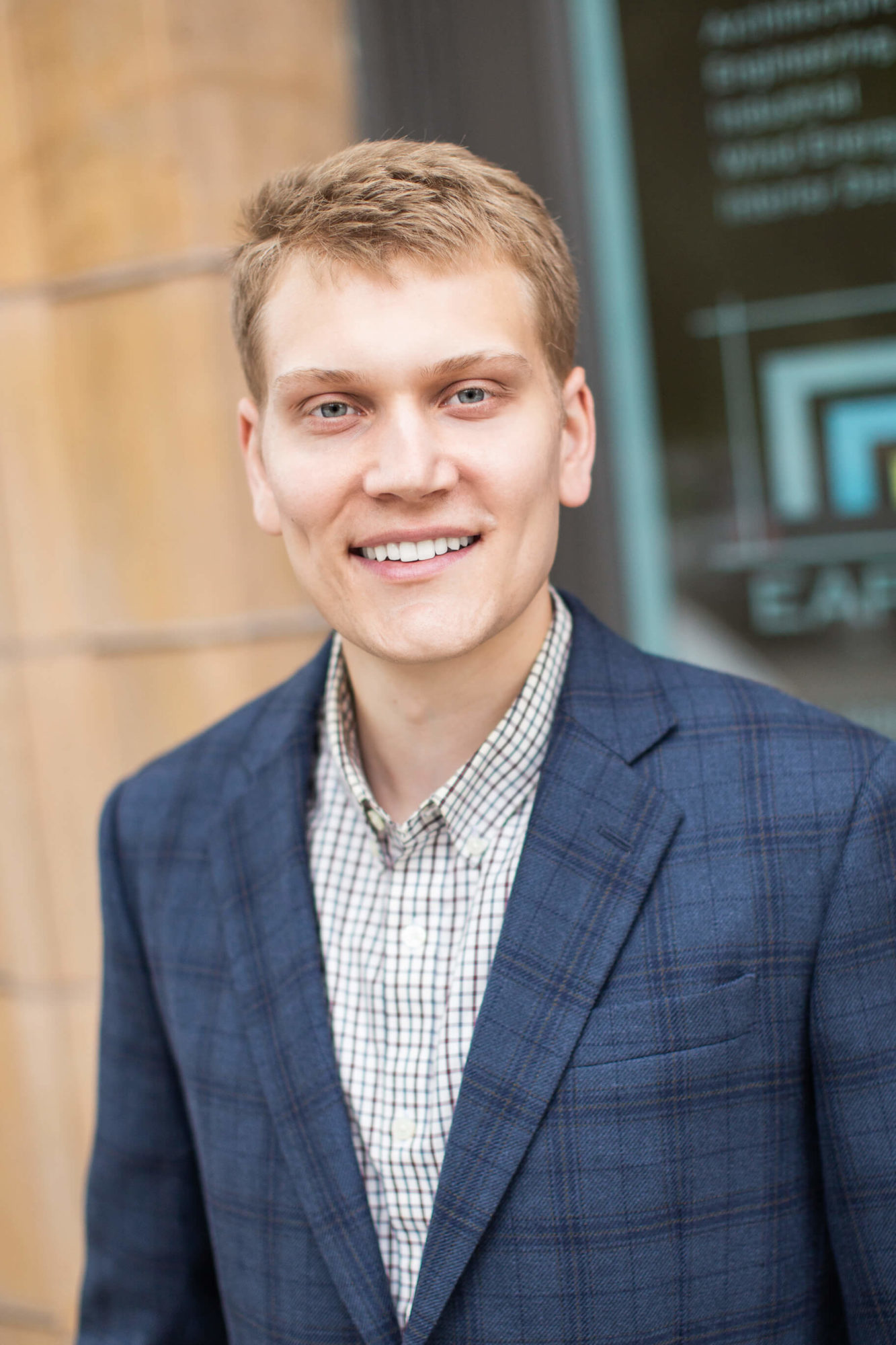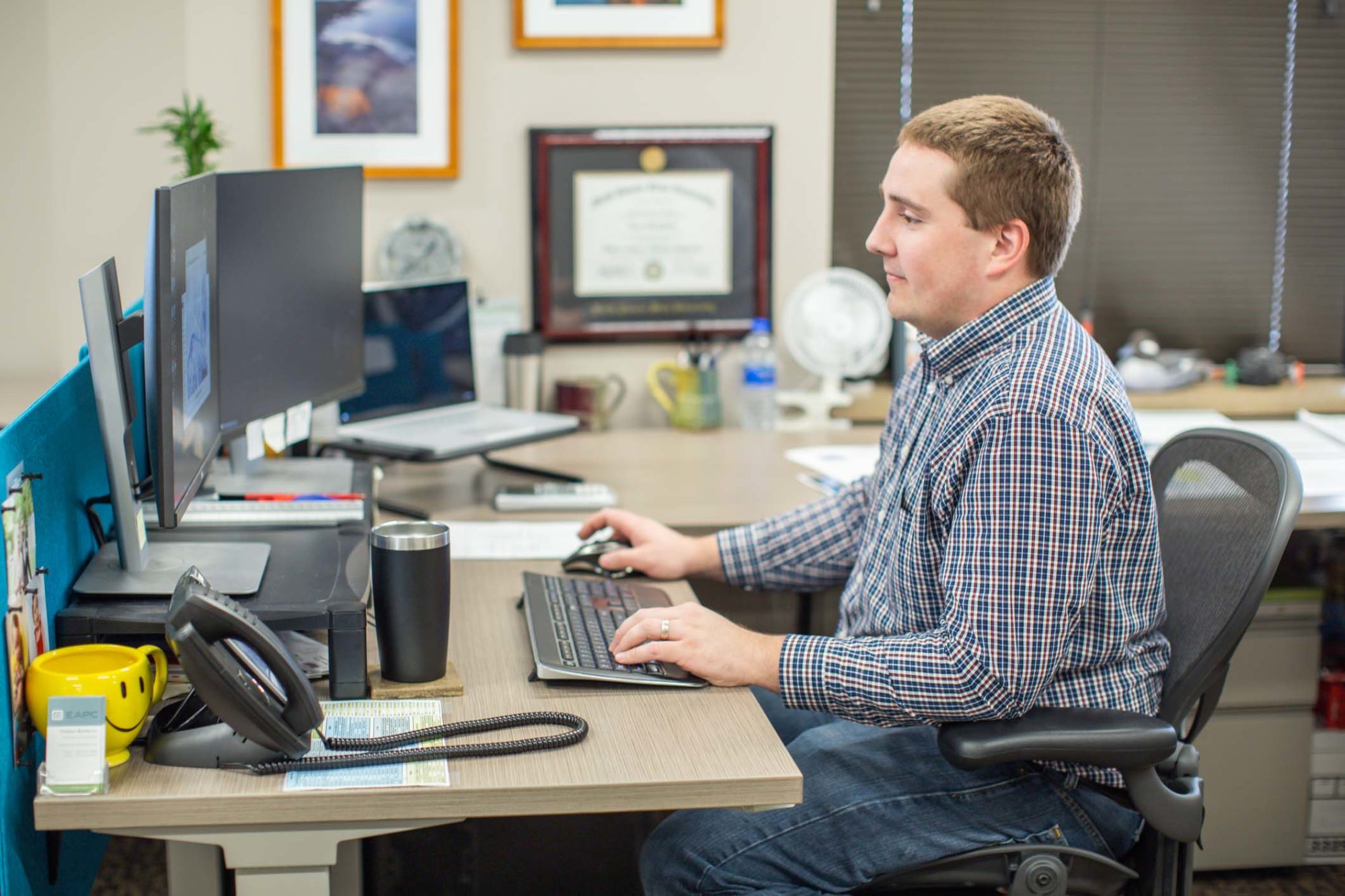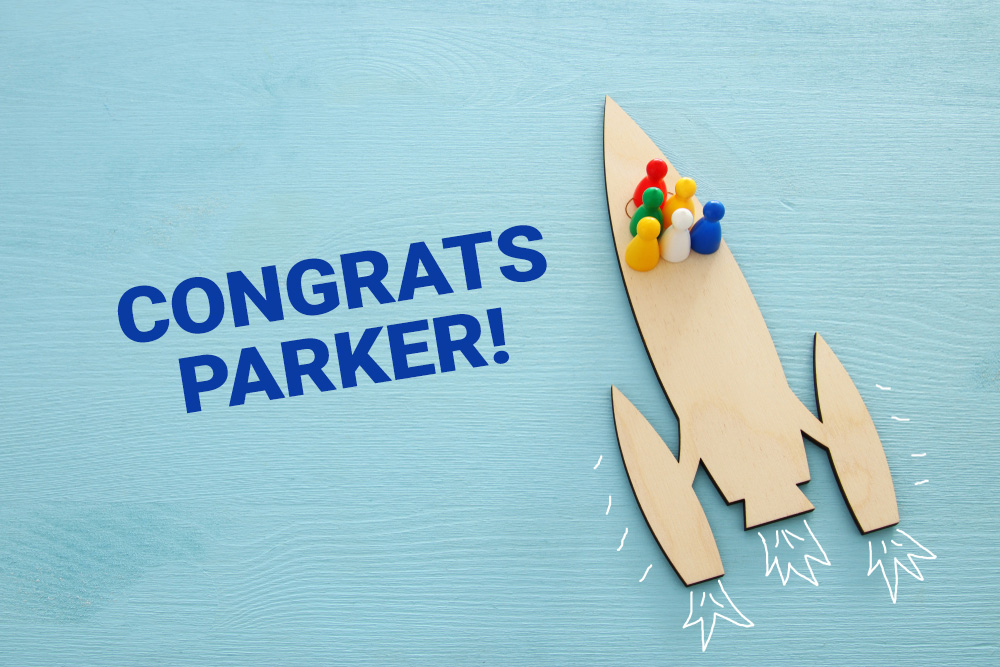Congratulations to EAPC’s Mechanical Department and New PE, Parker Lawley!
Parker shared a bit about his career path and experience toward becoming a licensed engineer.

Why did you choose Mechanical Engineering as your career path?
I had some family influence with two of my uncles both being mechanical engineers and the field also played well to my strengths and interests in school, so it seemed like a good fit. A couple of internships during college confirmed my hunch that I’d enjoy being an M.E.
When did you start prepping for the exam?
Six months prior to the exam I started gathering information from NCEES, completed my application to sit for the exam, poked around books and asked questions to co-workers about what their do’s and don’t’s were for preparing. A big help in this stage of the process was getting to review fellow EAPCer Trenton Bovitz’s study materials. He had just passed the test last Spring! Three months before the exam was when I really started hitting the books hard and diving into an on demand review course, which nicely rounded out my exposure to the different subject matter on the test.

What was your study experience like? How much time did you spend preparing? Did you use any books or guides or take any sort of prep courses?
I enjoyed refreshing on some of the subject matter I forgot from my college years and it was entertaining to dive deeper into some of the areas we deal with on a regular basis here at EAPC. On the other hand, I didn’t enjoy the self-inflicted nagging feeling of needing to study whenever I had a spare moment. I read somewhere 300 hours is a good target to shoot for in study hours, and I’d agree that it was a good target whether I made it there or not. I used School of PE’s on-demand review course which was an 80 hour online review paired with the Mechanical Engineering Reference Manual which almost every test taker brings with them to the exam. This course was fantastic for focusing in on what’s important to know for the test and what subjects you’ll need to study. Add that with a book of practice questions and a few practice exams and you’re well on your way to passing.

What advice did you get from others that helped you?
The passing score on this exam is around 65% depending on the curve. Getting six questions right out of ten generally doesn’t feel very good to most people (especially engineers), but that’s the reality of the test, so stay optimistic throughout and keep working hard until you’ve answered everything to the best of your ability.
Practice questions and exams are generally much harder than the actual exam, so don’t fret early on in your studies. NCEES practice exam is the closest practice tool you’ll get to taking the actual exam.

Do you have any tips for others who are preparing for the exam?
I’d highly recommend a review course if you are looking to study efficiently and don’t have ample free time. I’d also recommend taking two timed practice exams prior to the actual exam to get a good feel for the speed at which you need to work at to complete the test on time.

What were your overall thoughts about the test? Was it harder than expected? Easier? Were there any portions that you especially struggled with?
Exam question difficulty was very similar to the practice test provided by NCEES (governing body of the exam). I was able to answer all of the “easy” questions quickly and that was helpful in leaving time at the end to revisit more difficult or obscure questions.
How did your experience at EAPC help you with the exam?
The mentorship and experience I’ve gotten at EAPC definitely aided me in the HVAC related sections of the exam.
How do you feel now that you know you passed?
Very thankful, and relieved! The two month wait was tough, but luckily they are shortening that up for future test takers.
Is there anyone in particular you would like to thank?
I have a long list of people to thank. I’m especially thankful to my wife, Emily, for her support through the entire process, as well as family and friends who reached out in support and were flexible with my study hours. I can’t thank the leaders of our mechanical department enough for the mentorship I’ve received from them these past two years. I’m also thankful for the many mentors I worked with at Daktronics before EAPC and my professors at South Dakota State University that helped me reach this milestone.
What do you plan to do now that you have this shiny new title?
I’m very much looking forward to setting many of my textbooks back on the bookshelf, with the intention to not open them unless deemed absolutely necessary! Otherwise, I look forward to continue learning and growing within our industry to improve the services we provide our clients.
